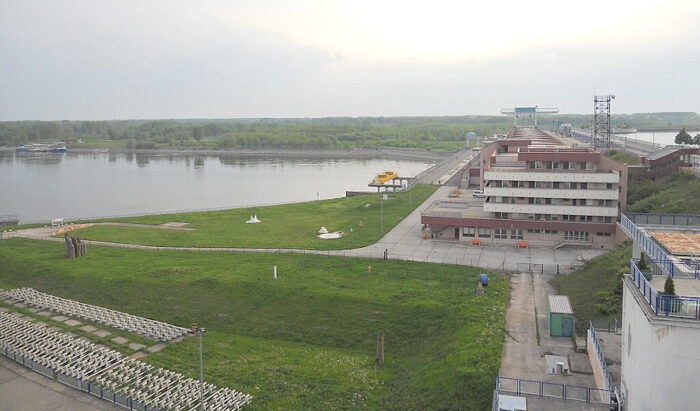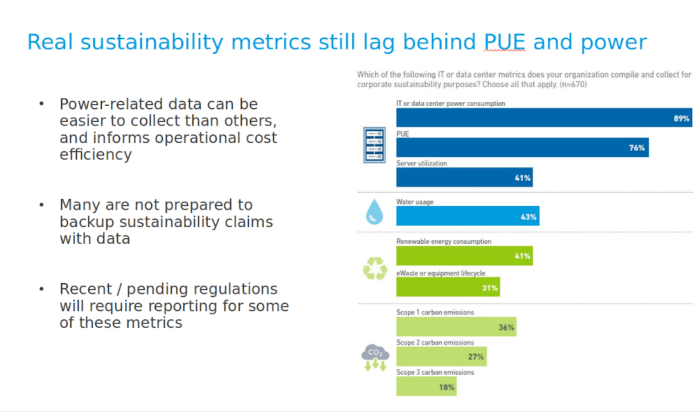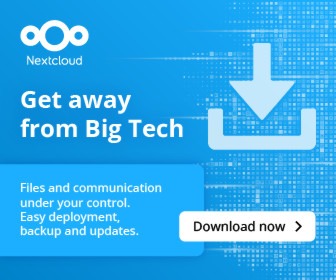Sustainability regulations now going into play have put data centers in something of a twilight zone regarding data they need to collect and analyze.

This is the third of a six-part series focused on Uptime Institute’s Global Data Center Survey 2024.
Any discussion on power usage and cooling almost automatically pertains directly to the notion of sustainability, which can have two meanings from a data center perspective, depending on whether it’s a data center team applying the term to its own operations or a government looking at the industry from a regulatory viewpoint.
Until recently, there hasn’t been much involvement by governments on the sustainability front, but that’s started to change, with recently started and upcoming regulations set to require data centers to monitor and report metrics, some of which haven’t traditionally been monitored by data center operators. These metrics are for the most part centered around emissions generated by data center operations, mainly focused on the use of electricity and water.
These include Scope 1 emissions, which are emissions produced directly by the data center; Scope 2, which are indirect emissions associated with the generation of purchased electricity, heating, and cooling; and Scope 3, indirect emissions that result from activities both up and downstream of the data center, that can include suppliers, customers, and end-users.

At a recent online briefing on Uptime Institute’s Global Data Center Survey 2024, Uptime’s executive director of research, Andy Lawrence said many data centers aren’t yet prepared for collecting and reporting these metrics.
“Some of the reporting is quite accurate because the data is there, like energy use reporting, carbon emissions reporting,” he said. “Scope One and Two is probably pretty accurate. Scope three is wildly inaccurate, to such a point that it’s really quite concerning.”
According to Lawrence, most of this failure doesn’t fall on data center operators.
“A lot of the data is very, very uncertain,” he said. “Another issue is that a lot of the rules about what you can and can’t include, particularly on things like renewable energy offsets and so on, a lot of that is very uncertain. I would say it’s nearly impossible to make comparisons from one company to another, or even to make a clear, dispassionate, and objective assessment of what somebody’s sustainability metrics, goals, and achievements are. But before you can question the accuracy of it you have to report it or publicize it and a lot of people aren’t doing that.”
In other words, as in any new regulatory environment there’s going to be a getting-to-know-you phase.
Tomorrow: Innovation and Impact in the Data Center.
Christine Hall has been a journalist since 1971. In 2001, she began writing a weekly consumer computer column and started covering Linux and FOSS in 2002 after making the switch to GNU/Linux. Follow her on Twitter: @BrideOfLinux




